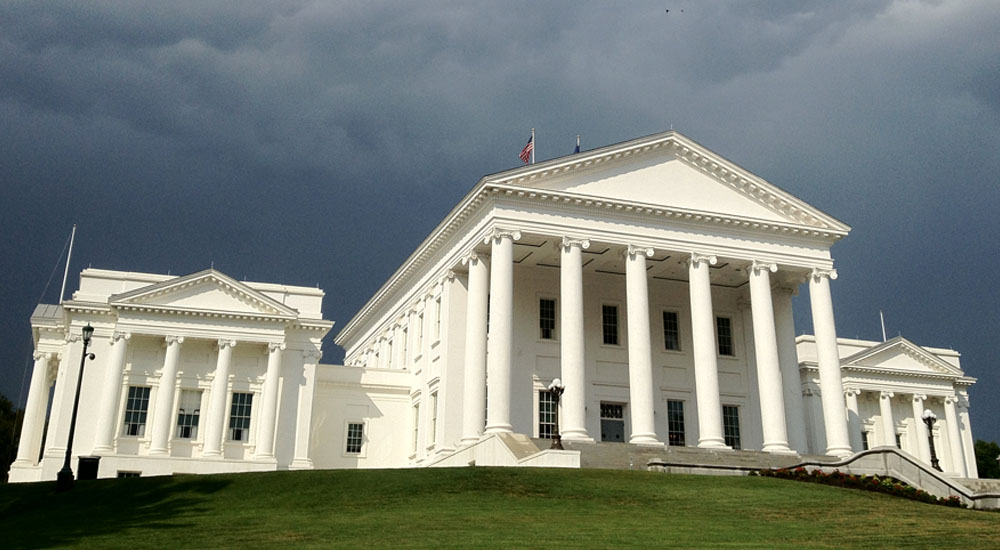On the session’s opening day, Delegate Kirk Cox (R-Colonial Heights), former Speaker and current gubernatorial hopeful, rolled out his legislative agenda consisting of bills to increase educational access, curb executive authority, reform government, and assist veterans.
Why is this significant? Because unlike most statewide candidates in either party who roll out popular (and safe) legislation, Cox has taken it upon himself to roll out a legislative agenda that reads more like a Contract With Virginia.
Speaking on the pieces of legislation he is carrying, Cox said:
“I am excited to be putting forward these legislative proposals during the 2021 session. Over the last several months, my constituents in the 66th district and people from across Virginia have expressed concern with the direction our state is heading. These bills will help increase educational access, ensure fair administration of elections, reign in executive power, and assist Virginia’s veterans.”
The five bills he plans to introduce this session are the sort of intersecting improvements that are the hallmarks of good government, to be sure — one that 30-year veterans of the legislative process understand.
Cox’s campaign released the following on his slate of proposals:
HB 2090: Establishes The READ Fund, which will increase educational access for students during the COVID-19 pandemic. Using federal CARES dollars, the READ Fund will assist parents in purchasing resources to pay for tutors, educational therapies, tuition or fees, transportation and consumable educational supplies. Virginia’s next generation are falling behind in virtual school settings, and efforts must be made to assist students and their families. A budget amendment for $9.8 million to fund the READ Fund will be carried by Cox.
HB 2088: Will depoliticize the State Board of Elections and Department of Elections by transforming the Board into a six member entity with equal representation between Republican and Democratic members. Additionally, the legislation transfers the authority to appoint the Commissioner of Elections from the Governor to the six member Board. With a 2018 JLARC report noting a history of “political bias” in the Department, this legislation will help restore neutrality in election administration and ensure free and fair elections in the state.
HB 2087: Will curb the Governor’s authority to declare long-lasting states of emergency without proper legislative oversight. Under this legislation, no emergency regulation can last more than 45 days without the General Assembly convening to approve the extension of such emergency declaration. Over the course of the pandemic, many Virginians have been dismayed over executive orders that have little to no basis in scientific study, including a curfew order. This bill’s 45-day mark preserves the use of states of emergency for natural disasters and allows for longer orders with proper legislative oversight.
HB2089: Will require the Office of the State Inspector General (OSIG) to release reports to General Assembly leadership concurrently to release the report to executive branch officials. Last fall, House and Senate leadership had to ask the state inspector general for unredacted copies reports relevant to a Parole Board investigation. This bill helps restore legislative oversight and ensure parity between executive and legislative leaders.
HB1766: Expands the disabled veteran’s passport program at Virginia State Parks, bringing the program in line with a recently expanded program for the National Park Service. Current law requires a veteran have a 100% rating from a service connected disability to qualify for the passport. The changes to state law would permit any veteran with a service connected disability to obtain the passport. A similar bill in 2010 had an estimated fiscal impact of less than $38,000/year.
Given Cox’s background as an educator over the last three decades, the focus on education is notable — especially from a Republican perspective.
House Democrats, who constantly harp on the importance of concepts such as equity, took a brutal axe to Cox’s first attempt to establish the READ Fund this summer. Yet as kids are trapped in virtual classrooms and falling behind — especially low-income and minority students — Cox seems determined to use his reputation and political leverage to get Virginia students the educational resources they need.
One other item of note? Cox’s expanding of the disabled veteran’s passport program is among one of many pro-veterans bills he has championed during his tenure in the House. This isn’t a throwaway item of interest either; Cox is one of the few delegates who actively employs a veterans affairs staffer year-round.
His other good government/open government bills come on the heels of widespread scandals and controversies, which have proven to be gaping wounds revealed by the COVID-19 pandemic.
Between Ralph Northam’s heavy handed and obtuse response to the coronavirus, a Parole Board run amok, and new election laws that often use the word “enfranchisement” as a guise to ram through disenfranchising policies, Cox appears to be taking the fight directly to an overreaching government in-need of a hard legislative check.
Naturally, the Democratic trifecta of House control, Senate control, and finally Northam in the Governor’s Mansion make passage of most Republican legislation a daunting task. Yet given Cox’s ability to navigate Democratic waters in the past and propose sensible legislation focusing on way-of-life issues, it will be hard for any Democratic-controlled process to strike down these bills on the basis of pure partisanship.
Simply put, these are good ideas and innovative lawmaking.
What’s more, they are rooted in firm conservative principles and sound Republican values, something we could surely use in Richmond and beyond.
